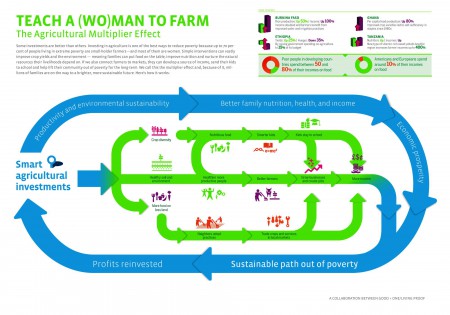- Special issue of Archaeological and Anthropological Sciences on food processing, “a critical variable in human economies and social and symbolic systems.” Looks like the editorial is open to all.
- Investigation of genetic diversity in Russian collections of raspberry and blue honeysuckle. Some of them are much richer than others.
- Solanum centrale, bush tucker: new microsatellites reveal diversity and polyploidy; and it benefits from arbuscular mycorrhiza, especially in low P soils.
- The Crop Intensification Program in Rwanda: a sustainability analysis. It isn’t.
- Wholesale replacement of lima bean (Phaseolus lunatus L.) landraces over the last 30 years in northeastern Campeche, Mexico. There was.
- Certification of agroforestry tree germplasm in Southern Africa: opportunities and challenges. Need a scheme based on the FAOs Quality Declared Seed (QDS) with truth-in-labelling, with 3 germplasm categories (audit, select and genetically improved) as a start.
- And speaking of trees … Silver fir stand productivity is enhanced when mixed with Norway spruce: evidence based on large-scale inventory data and a generic modelling approach. Diversity good for silver firs, no effect on Norway spruce.
- Genotypic variation and relationships between quality traits and trace elements in traditional and improved rice (Oryza sativa L.) genotypes. Traditional varieties have more.
Have your say!
You guys are all contributing to the online World Bank forum on food security, right?
The multiplier effect in agricuture
Smart agricultural investments leading to crop diversity? What an amusing notion!

Nibbles: SEARICE, R&D, Sustainable intensification, Biofortification, Chillies, Safe movement, Mangoes, Weeds, Berries, Blueberries, Cerrado
- SEARICE explains its approach to seed sovereignty and farmer participation.
- Nature on IFPRI’s report on agricultural R&D in Africa. Not pretty.
- Resilience Science on the UN Special Rapporteur’s sustainable intensification thing.
- The Gates Foundation is on a nutritional roll; most of yesterday’s posts are available from this round-up.
- New Mexico gets all protectionist about its chillies.
- IITA explains how it provides healthy germplasm. Various different interesting stories in there, stick with it.
- Farmer conservation power in India.
- How to control invasive species. Eat more weeds.
- Presentation on Trends in global nutrition and health: Local fruits and their potential importance for nutrition and health as seen at Pavlovsk berry meeting.
- Speaking of berries…
- The cerrado (and its crop wild relatives) is in trouble. We talked about this, weren’t you paying attention?
Nibbles: Natural history collections, Vancouver’s Old Apple Tree, Conserving local crops, Biofuels, Quinoa, Climate change
- Why don’t genebanks count as natural history collections?
- Saving The Old Apple Tree. That would be as opposed to any old apple tree.
- “If the indigenous seeds are important enough for scientists to fight to preserve in a seed vault deep in the belly of a mountain in Norway, would it not make sense to ensure these seeds survive within their own environments?” Good question from Uganda.
- Council on Bioethics says “Biofuel policies are unethical”. Here’s the Press Release.
- Local women’s quinoa cookbook (in Spanish) wins prize (in France). We’re calling it quinoa, not quinua, because we want people to find us.
- CARE cares about climate change and food security.